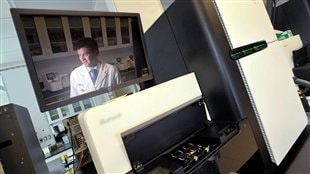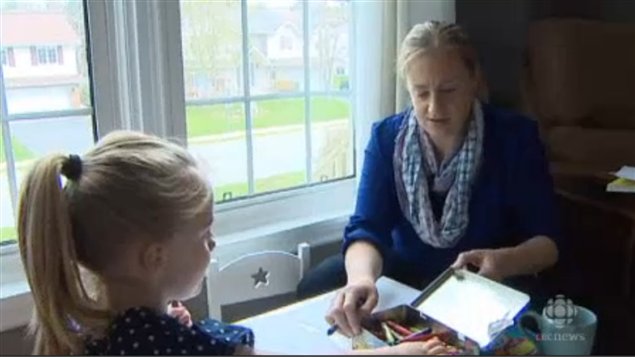Researchers in Toronto have found a new way to predict autism very early in a child’s life which will help them get the early intervention so critical to improving their condition. Autism affects one in every 68 children, impairing their social interaction and communication, and causing repetitive and restrictive behaviours.
Scientists already knew there were genetic alterations associated with the development of autism, but they were not sure which ones were critical.

A new ‘genetic formula’
“Using new technology we can readily discover these genetic changes, but it’s been very difficult to predict which of them will actually lead to autism spectrum disorder,” says Stephen Scherer, senior scientist at the Hospital for Sick Children. “And what we’ve done here is we’ve developed what we call a genetic formula that allows us to actually determine this.”
The genes that have the variations that can lead to autism mostly get switched on during the development of the fetus, and now they can be detected even before a child is born. Until now, autism was diagnosed later when a child should be, but isn’t developing language or social skills normally. With early detection treatment can begin sooner. If an autistic child has a new sibling, parents can have that child tested to see if the new baby is autistic as well.
New testing already being used
The testing is already being used in Toronto enabling parents to better decide on treatment for their children.
This study bolsters the belief that at least 20 per cent of the cause of autism is genetic mutations, says Scherer. “Of course, the environment can interact through genes. The genes are like a sensor of the environment and we think that, over time, as we apply this formula and as we do more and more DNA sequencing experiments, that we’ll be able to account for perhaps 50 per cent or more of the cause of autism and that indeed it will be genetic. In some cases these are inherited changes, in some cases these are spontaneous changes that occur only in the individual child.”
‘A very exciting time’
This research provides a basis for a whole new range of experiments in personalized medicine and new therapies based on medicines or drugs, he concludes. “This is a very exciting time for the field of autism research.”







For reasons beyond our control, and for an undetermined period of time, our comment section is now closed. However, our social networks remain open to your contributions.